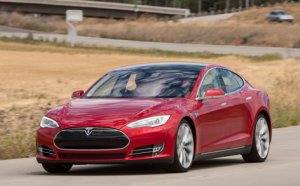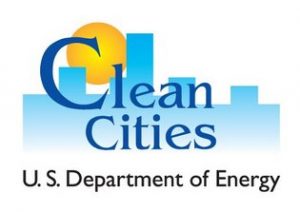by Jon LeSage, editor and publisher, Green Auto Market
Here’s my take on the 10 most significant and interesting occurrences during the past week…….
 Model S ratings drop: The honeymoon with Consumer Reports is over for Tesla Motors, and CEO Elon Musk says the negative reliability ratings were off the mark. The magazine received feedback from about 1,400 Model S owners as part of its Annual Reliability Survey. The results showed a worse-than-average overall problem rate, lower than last year’s average rating. The new reliability study findings followed a glowing review in August from Consumer Reports, where the Tesla Model S P85D was given 103 on a 100-point system, the highest score ever. That didn’t include reliability ratings; the concerns owners expressed include climate control, steering, and suspension systems all appearing to have more problems than they did during the 2014 model year. Musk wrote it off in his October 21 Twitter post: “Consumer Reports reliability survey includes a lot of early production cars. Already addressed in new cars.”
Model S ratings drop: The honeymoon with Consumer Reports is over for Tesla Motors, and CEO Elon Musk says the negative reliability ratings were off the mark. The magazine received feedback from about 1,400 Model S owners as part of its Annual Reliability Survey. The results showed a worse-than-average overall problem rate, lower than last year’s average rating. The new reliability study findings followed a glowing review in August from Consumer Reports, where the Tesla Model S P85D was given 103 on a 100-point system, the highest score ever. That didn’t include reliability ratings; the concerns owners expressed include climate control, steering, and suspension systems all appearing to have more problems than they did during the 2014 model year. Musk wrote it off in his October 21 Twitter post: “Consumer Reports reliability survey includes a lot of early production cars. Already addressed in new cars.”- More about VW: Volkswagen has hired Thomas Sedran, former head of GM’s Opel division, to run its group strategy. Sedran is the second outsider recruited to join team as the German automaker loses its No. 1 in global sales ranking and deals with its diesel emissions scandal. Christine Hohmann-Dennhardt, a former judge from Germany’s top court, has been brought into VW to head its legal and compliance division. Differences in how European regulatory agencies view and measure emissions was a top issue over the past week. Europe has been considered behind the U.S., and some of that has to do with their testing model based on carbon emissions buts giving less attention to nitrogen-oxide (NOx) emissions, which is a key measure in the U.S. for air pollution.
- Growth forecast for biogas: Biogas, which can also be classified as renewable natural gas and biomethane, is starting to show signs of extending beyond academic test studies into commercial-scale motor fuel. A new Navigant Research report focuses on four feedstock sources in the global market: waste, industrial, agricultural, and sewage. Capacity and revenue, segmented by feedstock source, end use (electricity, renewable natural gas injection, and transport), region, and selected country, through 2024 are examined in the study. The study forecasts that the global cumulative revenue from biogas production should reach $25.8 billion by 2024. Growth is expected to come from gaining regulatory support and government incentives, and playing a role in meeting expanding renewable energy targets.
- Testing out carsharing: Automakers and carsharing companies are sponsoring promotional test projects in urban centers. General Motors’ new “Let’s Drive NYC” offering is reaching out to young urban professionals in New York City. GM is working with a New York real estate firm where residents can purchase access to a fleet of shared SUVs parked in their garage. Daimler has tested out a shared mobility partnership with a suburban home developer in Southern California. Carsharing giant Zipcar has worked with apartment giant Equity Residential, which owns upwards of 110,000 rental units, in cities including New York, Boston, Seattle, and Washington, D.C.
- China growing EV market: China is becoming a booming market to produce and sell electric vehicles in the consumer, fleet, and transit markets. Sales have been down in the past year, but the national government is committed to seeing growth in the market through incentives. Tesla Motors has been pleased to negotiate with officials on Chinese production, and will begin assembling cars in that country in two years, CEO Elon Musk said. UQM Technologies has received a purchase order for its PowerPhase electric propulsion systems for ITL Efficiency, a Beijing-based subsidiary of China’s Eastlake New Energy. Revenue may be in excess of $400 million over a ten-year period, UQM said, for shuttle and transit buses and medium-duty trucks. ZAP and Jonway Auto have increased factory production capacity and running operations at seven days a week, with production of around 50 EV minivans per day in order to meet pressing backlog orders from Dong Feng Motor Corp. in the Chinese market.
- Back to the Future DeLorean: For some fans of advanced vehicle technologies, the fast time-traveling DeLorean powered by garbage as engine fuel in the “Back to the Future” trilogy stands out in their memories. Toyota participated in 30th anniversary of the first film in the series with a commemorative video with the film’s stars, Michael J. Fox and Christopher Lloyd. It also serves as a kickoff to the U.S. debut of the 2016 Toyota Mirai hydrogen fuel-cell vehicle.
- Charging station connectivity: Growing electric vehicle charging station networks in the U.S. and abroad will require a lot more than setting up stations and supplying them with power. Communications equipment, payment systems, and consumption data collection is needed for public charging stations to increase their presence and functionality. In a new Navigant Research market forecast, the consulting firm projects that global communications equipment and services associated with EV charging networks is expected to generate revenue of just over $62.8 million in 2015 and grow to more than $709.7 million in 2024.
- Highlights from UCLA Luskin Center’s Impact report: Factors that influence plug-in electric vehicles sales in California; Overcoming electric vehicle adoption barriers for apartment and condominium residents; Assessing the state of the state’s PEV policies; and Paving the way for complete, living streets that create vibrant, productive, and sustainable communities.
- Honda’s tech revolution: Honda is about to launch a new round of powertrain technologies with the goal of boosting fuel economy and performance and reinforcing the company’s reputation for innovation. The new technologies range from a new-generation plug-in hybrid powertrain that gets 40 miles of range on its battery; a 10-speed automatic transmission; a lean-combustion cycle that gains ultrahigh thermal efficiency; and unveiling the production version of its hydrogen fuel-cell vehicle at the 2015 Tokyo Motor Show. That fuel-cell vehicle’s platform will also be used in the 2018 plug-in hybrid.
- Pre-orders of Mirai: About 2,000 people have placed orders for the Toyota Mirai hydrogen fuel cell vehicle that just arrived for sale in the U.S. in select California markets. Only about half of those orders will be fulfilled in the 2016 model year, Toyota says.

